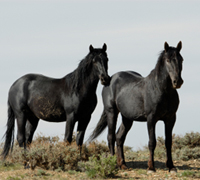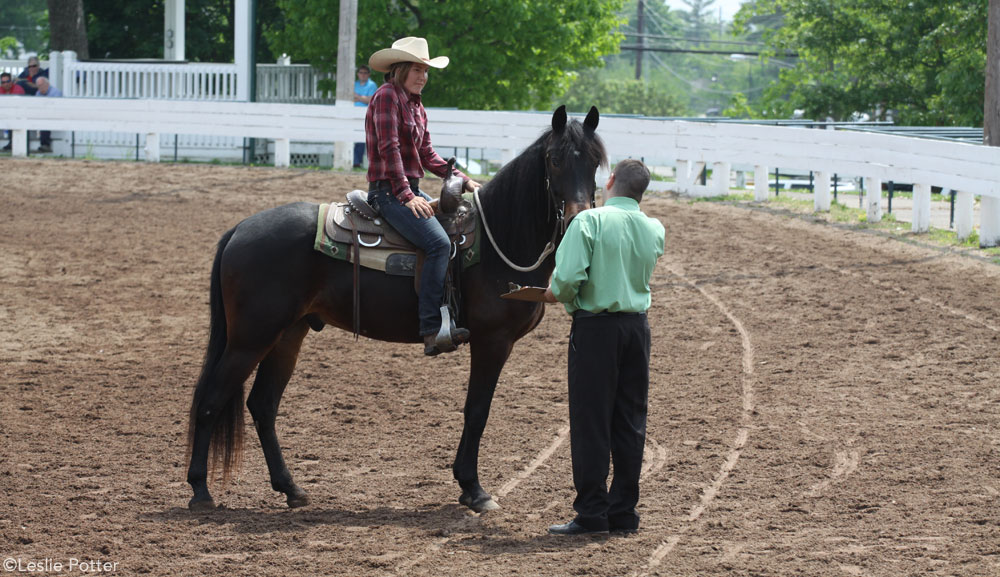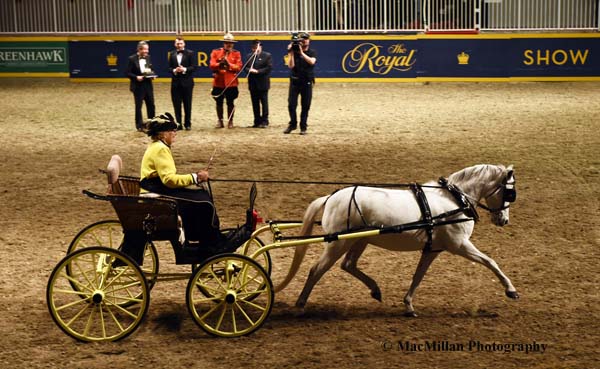 The Extreme Mustang Makeover, the nation’s most unique equine competition, will offer an estimated $300,000 in prize money as it enters its third year of competition after two years of events across the United States.
The Extreme Mustang Makeover, the nation’s most unique equine competition, will offer an estimated $300,000 in prize money as it enters its third year of competition after two years of events across the United States.
“We’ve been very fortunate in this economy to be able to sell out all of our events with the average adoption of the Mustangs holding at about $1,000 per head,” said Mustang Heritage Foundation Executive Director Patti Colbert. “Our goal each year has been to place 1,000 Mustangs in good homes through the Extreme Mustang Makeover and our Trainers Incentive Program and the American public has responded. We will close out 2009 with 1,000 of our nation’s wild horses gentled and starting new relationships with their adopters.”
Trainer applications are available now for events taking place in Oregon, California and Colorado with more events planned for Tennessee and Nebraska. First up in the “regular season” will be the $10,000 estimated Northwest Extreme Mustang Makeover March 19-21 held in conjunction with the Northwest Horse Fair and Expo in Albany, Ore. Trainer applications are due November 1 and are available though the event web site at www.extrememustangmakeover.com. Forty geldings will be gentled for this competition with up to 40 trainers accepted to participate in the event. Trainers may apply for more than one horse to train.
The 2010 season will begin, however, with a return engagement to the Fort Worth Stock Show and Rodeo January 22-23 as Mustang Magic brings 15 of the 2009 season’s top trainers in an invitational competition featuring horses they picked by draw in September during the Extreme Mustang Makeover Western Stampede in Fort Worth. Trainers competing in this event were among the top three contenders during 2009 events.
Colbert also promises some exciting new elements to the competitions in 2010 with well-known horsemen and clinicians offering their support and expertise.
“Trainers can expect to see top horsemen like Al Dunning, Craig Cameron and Ken McNabb involved with the Extreme Mustang Makeover in ways we’ve not seen these horsemen involved before,” said Colbert. “Plus, we are going to be introducing some interactive ways for our fans to get even more involved, so 2010 is going to be an exciting year.”
Nearly 30,000 Mustangs roam federal lands across the country. In order to manage the herds and maintain both land and herd health, the Bureau of Land Management oversees the adoption of wild horses and burros through public adoptions held throughout the United States. Since 1973, more than 220,000 wild horses and burros have been adopted.
Horses ranging from yearlings to six years old are typically selected from the herds for adoption, while older horses are placed on privately-held pasture lands to live out their normal lives. However, some horses aged 11 or older or that have been passed over for adoption three times can be sold, according to a law passed by Congress in 2004. Since that time, the BLM has worked with livestock owners and ranchers to encourage the purchase of this population of horses.
Protection for these celebrated animals began in 1950 when Velma B. Johnson, known as Wild Horse Annie, began a grassroots campaign, involving mostly school children, to save the horses from unscrupulous ranchers and “mustangers” gathering horses for commercial purposes. While the bill passed by Congress in 1959, called the Wild Annie Act, did prohibit the use of motorized vehicles in gathering horses, it did not provide for the protection or management of the herds. In response to the public outcry, Congress passed and President Richard Nixon signed into law the Wild Free-Roaming Horses and Burros Act of 1971 that provided funding for the management care of these wild horses.
All horses competing in the Makeover and Challenge events are made available for adoption. Potential adopters apply for the opportunity to be included in the competitive bidding process at Foundation events with BLM personnel available to review and approve the application on site. In order to apply, applicants must be at least 18 years old, have no prior conviction for inhumane treatment of animals or violations of the Wild Free-Roaming Horses and Burros Act and be able to demonstrate that adequate housing, food, water and facilities will be available to humanely care for the animal. Specific facility requirements also apply that pertain to type and height of corral as well as shelter from the elements.






Good article.
cool
I wish I could enter.